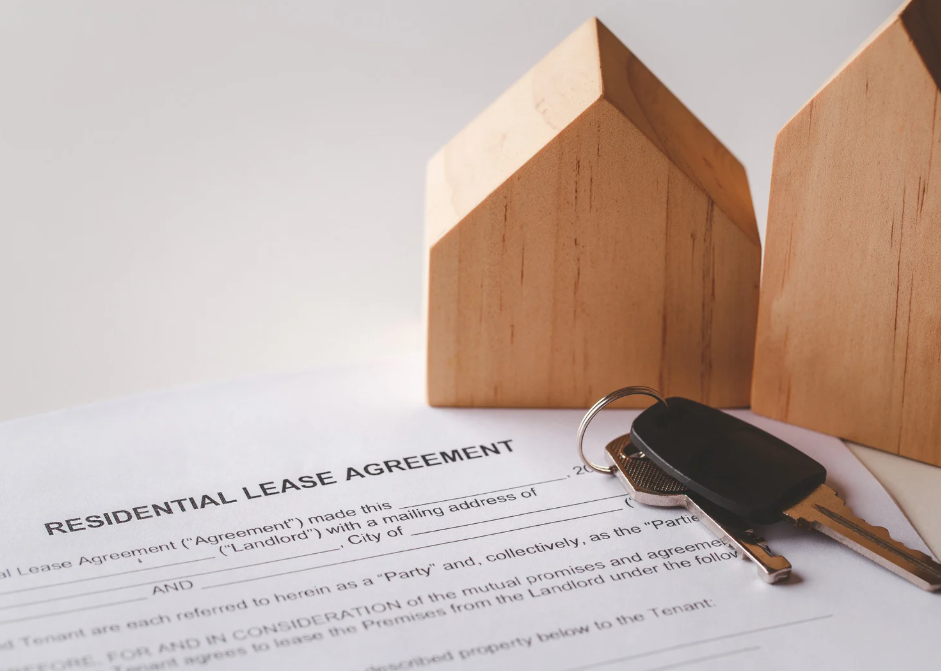A Third of Britons Want to Become Landlords — But with High Taxes and Gloomy Forecasts, Is Buy-to-Let Still Easy Money?
- TBA

- Jul 23, 2025
- 5 min read
In recent years, ‘buy-to-let’ has remained a popular topic of conversation in the UK. Despite increasing tax burdens, tighter regulations and rising borrowing costs, many Britons and overseas landlords still hope to build wealth and supplement their retirement income through rental property.
A new survey reveals that even amid changes to stamp duty relief and an uncertain housing market, a third of Britons still want to own their own rental property and earn income as landlords.
But given the latest tax changes, is property investment really still the easy route to passive income it once seemed to be?
A third of Britons reportedly still want to be landlords
According to a recent survey by Market Financial Solutions, despite rising taxes, tighter rules and a gloomy market outlook, one in three Britons would like to own a rental property.
Enthusiasm is especially high among young people: over half of respondents aged 18 to 34 plan to become landlords in future, whereas only 14% of those over 55 expressed interest.
One might argue that an 18-year-old has yet to fully consider the pros and cons of letting property — and that many over-55s are already landlords and therefore not dreaming of it in the same way.

Is buy-to-let still a solid bet?
For many investors, buy-to-let is more than just an investment — it is seen as a form of private pension: build up a property portfolio during working life, then rely on rental income to provide stable earnings in retirement. There is also a widespread belief that house prices will generally rise in the long run, while rental income can generate healthy cash flow in the meantime.
The Market Financial Solutions survey found:
Over half of respondents agreed that property is a safe and stable investment.
60% of adults believe investing in property is an effective way to build long-term wealth.
37% would rather put their money into property than shares.
Taxes and new regulations take turns ‘squeezing’ landlords
In the past, buy-to-let was a robust alternative to shares and other assets — but today, heavier taxation has squeezed profit margins. Over the past few years, landlords have faced an increasingly tough environment.
Since 2016, higher taxes and stricter rules have hit the buy-to-let market hard. According to estate agent Hamptons, the total number of rental properties in the UK has fallen by around 300,000 in the past nine years, with more landlords selling up than new investors entering the market.
For UK resident landlords:
From 1 April 2025, stamp duty on second homes and additional properties (including rental property) will return to the pre-2022 graduated rates:
£0–£125,000: 5%
£125,001–£250,000: 7%
£250,001–£925,000: 10%
£925,001–£1,500,000: 15%
Over £1,500,000: 17%
For non-UK resident landlords:
There is an extra 2% surcharge for overseas buyers, added on top of the above rates. This means overseas landlords pay the UK resident rate plus 2% — on a tiered basis.
In addition, Labour’s proposed Renters’ Rights Bill is expected to become law this year. This will:
Ban ‘no fault’ evictions.
Limit rent rises to once per year.
Ban ‘bidding wars’ and introduce various other restrictions.

How much profit do landlords make when selling?
According to Hamptons, in 2024, landlords selling property in England and Wales made an average profit of £103,640, with an average return on investment of around 70% over a typical holding period of 11–12 years.
Of course, location makes all the difference. For example, someone who bought in London in 2009 will likely have seen their property double in value. By contrast, a landlord who invested in Middlesbrough has seen prices rise by only about 23% since 2009 — most of that gain coming in the past three or four years.
Looking ahead, the direction of house prices remains uncertain. Current forecasts suggest that by 2029, average UK house prices may rise by 23.4% — so a £300,000 home today could be worth around £370,000.
What about rental yields?
Paragon Bank’s latest data shows that as of April 2025, the average gross rental yield for buy-to-let in the UK is 7.11% — the highest since 2011.
For example, a £200,000 rental property could generate £14,220 a year in rental income (before tax). Compared to savings accounts which generally offer less than 5%, this is clearly attractive.
However, landlords must pay agency management fees (about 10%) and bear the costs of finding and vetting tenants, drawing up inventories and maintaining the property (such as boiler or plumbing repairs).
If there is a mortgage, interest payments will also eat into net profits.
Most landlords now hold property through a company
Faced with increasingly tough tax treatment of private landlords, many now choose to hold rental properties through a limited company.
This means registering property to a company — such as a Special Purpose Vehicle (SPV) — rather than in a personal name. This process, known as ‘incorporation’, can help landlords boost their buy-to-let returns.
In 2024, a record 61,517 new buy-to-let companies were set up — a 23% increase on the previous year. The reasons are clear:
Companies pay Corporation Tax instead of personal Income Tax — often at a lower rate.
Companies can deduct 100% of mortgage interest before paying tax, whereas private landlords can only claim back 20% — a major difference for higher-rate taxpayers (40%).
Between February 2016 and February 2025, the number of companies holding buy-to-let properties in the UK rose from 92,975 to 401,744 (source: Daily Mail).
Industry estimates suggest that 70% to 75% of new buy-to-let purchases now use a company structure.
Of course, this approach also has costs: companies must prepare and file annual accounts, hire accountants, and sometimes pay for statutory audits. Mortgage rates and arrangement fees are generally higher for company loans too. Inflation and rising living costs limit real income growth — deepening people’s reliance on pensions while making it harder to preserve and grow pension wealth in a volatile environment.

Some advice from TB Accountants
So, back to our opening question: is buy-to-let still profitable?
Over the past decade, buy-to-let has gained a reputation for becoming less attractive. Yet surveys and market data show that this ‘traditional’ way to build wealth through bricks and mortar remains resilient — and still appeals to many who want to hold tangible assets.
However, with shifting tax policies and an evolving market, buy-to-let is no longer simply ‘easy money’. Instead, it demands careful tax planning, professional advice and a clear understanding of the market.
You need to assess not only a property’s potential for capital growth but also your personal income and tax position — and choose the right size and structure for your portfolio.
If you decide to hold property through a company, you will need expert help to handle bookkeeping, tax returns and annual accounts, and to claim all allowable deductions.
Why TB Accountants?
Professional Assurance: Our team includes ACA members and ACCA-certified professionals, delivering services to the highest industry standards.
Responsive Service: We respond to your inquiries within 24 hours, ensuring efficient communication across time zones.
Multilingual Support: Services available in English, Mandarin, Cantonese, Japanese, French, German, Spanish, Italian, Turkish, and more.
Trusted by Clients Worldwide: Consistently praised by global clients for proactive, professional, and reliable accounting and tax support.

For individuals and businesses looking for UK taxation services, use our contact form to get in touch for more information.
Get in touch with us at info@tbagroup.uk or for a free one-to-one consultation.



